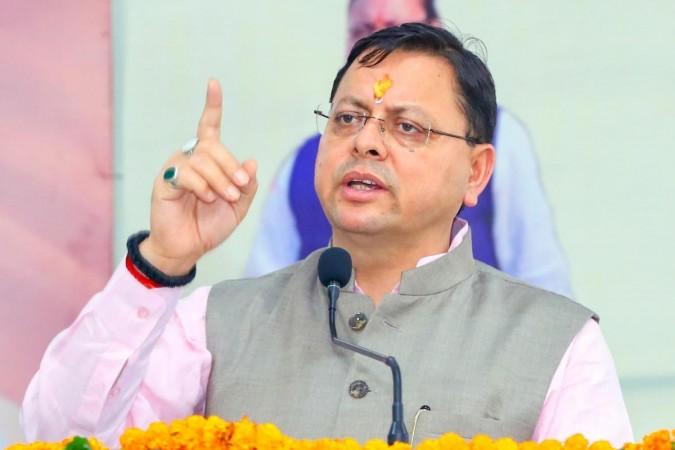
The Uttarakhand government has mandated the recitation of Bhagwad Gita shlokas during morning prayers in government schools. This initiative, endorsed by Chief Minister Pushkar Singh Dhami, aims to instill moral values and spiritual strength in students. The decision aligns with the National Education Policy (NEP) 2020, which emphasizes blending traditional knowledge with contemporary education.
Chief Minister Dhami expressed his support for the initiative, highlighting the significance of the Bhagwad Gita in shaping young minds. "Bhagwad Gita shlokas will inculcate the Vedic concept of duty and rightful action in children and will show them the right path. The scriptures will help build good character and also make them understand the power and strength of spirituality," he stated. He further added, "It will shape them as upright individuals. Where they go, they will excel in that area."
The directive specifies that one shloka from the Bhagwad Gita will be recited each week, accompanied by discussions on its importance. This approach is designed to nurture human values, leadership skills, decision-making abilities, and scientific thinking among students. Government officials emphasize that the shlokas should not be treated as mere reading material but should reflect in the students' attitudes and behavior.

Aligning with National Education Policy
The initiative is part of a broader effort to integrate traditional systems with modern education. The Uttarakhand government has also approached the National Council of Educational Research and Training (NCERT) to include teachings from Hindu scriptures like the Bhagwad Gita and Ramayan in the school curriculum. Although no specific timeline has been set for the integration of these texts into textbooks, the recitation of Gita shlokas in daily prayer meetings is already underway in the state's more than 17,000 government-run schools.
This move is not isolated but part of a larger trend across India, where several states are revising their educational curricula to align with the NEP 2020. The policy emphasizes the Indianization of the education system, which often involves removing subjects that portray India in a negative light and adding historical events that foster patriotism. Many states have included Hindu religious texts, such as the Bhagwad Gita, as part of the moral science curriculum.
The Ministry of Education has formed a 12-member committee, headed by K Kasturirangan, to develop a new curriculum that incorporates these changes. The committee's work is guided by the recommendations of the NEP, which calls for a curriculum that reflects India's rich cultural heritage and history. Govind Prasad Sharma, chairman of the National Book Trust, has highlighted the need to rewrite history books to focus more on the 'fighting spirits' of Indian rulers like Maharana Pratap, who resisted foreign invaders.
The move to recite Gita shlokas in schools has sparked discussions on the role of religious texts in education. Proponents argue that such texts provide valuable moral and ethical guidance, helping students develop a strong character and a sense of responsibility. Critics, however, caution against the potential for religious indoctrination and stress the importance of maintaining a secular educational environment.
(With inputs from IANS)

















